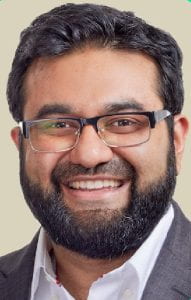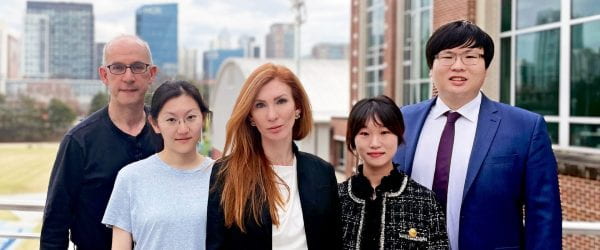Biolocity is proud to announce the exceptional 2023-2024 cohort awardees for funding and commercialization support through Biolocity Launch. These cutting-edge technologies are poised to revolutionize the field of biotech, bringing forth groundbreaking advancements that have the potential to reshape healthcare, drug delivery, and cancer therapies. We want to highlight the four outstanding awardees and explore their remarkable contributions to the future of biotechnology.
“There is an increasing pipeline of technologies impacting human health at Emory University and Georgia Tech. This year’s applicant pool was very competitive, and the projects selected to be a part of this cohort have a strong potential for commercialization,” says Courtney Law, Ph.D., managing director of Biolocity. “We are excited to work with this year’s awardees to advance their technology development toward the market and ultimately patient impact.”
Biolocity selects projects through an annual, multi-stage application process that allows university innovators to receive pitch coaching, market assessments, and competitive analysis to cultivate commercial success. Faculty members work with entrepreneur advisors to de-risk their technology through each application stage. The final cohort is determined by an oversight committee of venture capitalists, entrepreneurs, clinicians, biomedical engineers, and university technology transfer experts.
Since 2015, the program has awarded more than $10.5 million across 67 projects, generating over 16.6 times that much follow-on investment.
This year’s cohort includes:
Cellcue Bio: A 3D microfluidic platform with improved prediction of clinical outcomes for cell therapies leveraging the power of advanced microfluidic technology. This innovation could enhance the efficacy and safety of cell-based treatments, opening new avenues for personalized medicine and regenerative therapies. Project Leads: Andrés Garcia, Ph.D. (Georgia Tech) and Wilbur Lam (Emory University)
Mageia Therapies: A therapeutic enzyme to reverse immunosuppression in solid tumors. By leveraging their expertise in immunology and oncology, Mageia Therapies seeks to unlock the full potential of the immune system in combating cancer. Their breakthrough approach directly targets a key signaling pathway in cancer immunosuppression, enabling immunotherapy for a variety of solid tumor types. Project Lead: John Blazeck, Ph.D. (Georgia Tech)
Next-Gen 5-FU: Safer and more effective next-generation 5-fluorouracil (5-FU) based therapeutics. By leveraging novel prodrug strategies and innovative formulations, they seek to enhance the therapeutic efficacy of 5-FU-based compounds while minimizing adverse side effects. Project Leads: Dennis Liotta, Ph.D., Eric Miller, Ph.D., Nicole Pribut, Ph.D., and John Petros, MD (Emory University)
OZ-Link: A generalizable delivery platform that enables extended and precise drug delivery. By utilizing cutting-edge technologies and advanced formulation strategies, OZ-Link seeks to overcome the challenges associated with targeted drug delivery. Their groundbreaking platform has the potential to revolutionize various therapeutic areas. Project Leads: M.G. Finn, Ph.D. and Kasie Collins, Ph.D. (Georgia Tech)
Biolocity continues to foster a culture of innovation and support for these pioneering scientists and entrepreneurs, inspiring and empowering them to bring their visionary technologies to fruition. Together, they will shape the future of biotechnology and positively impact countless lives.
Learn more about Biolocity and our growing portfolio at biolocity.org.








You must be logged in to post a comment.